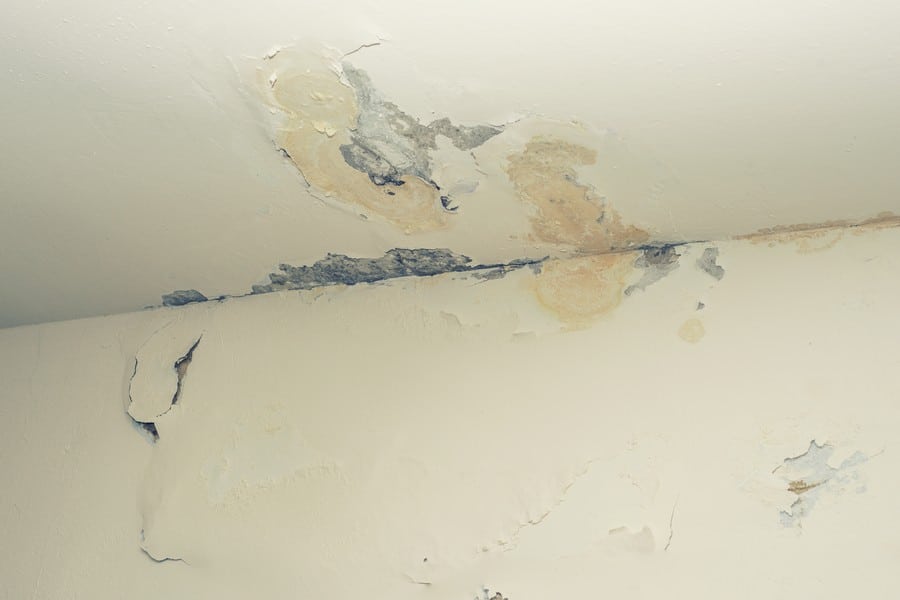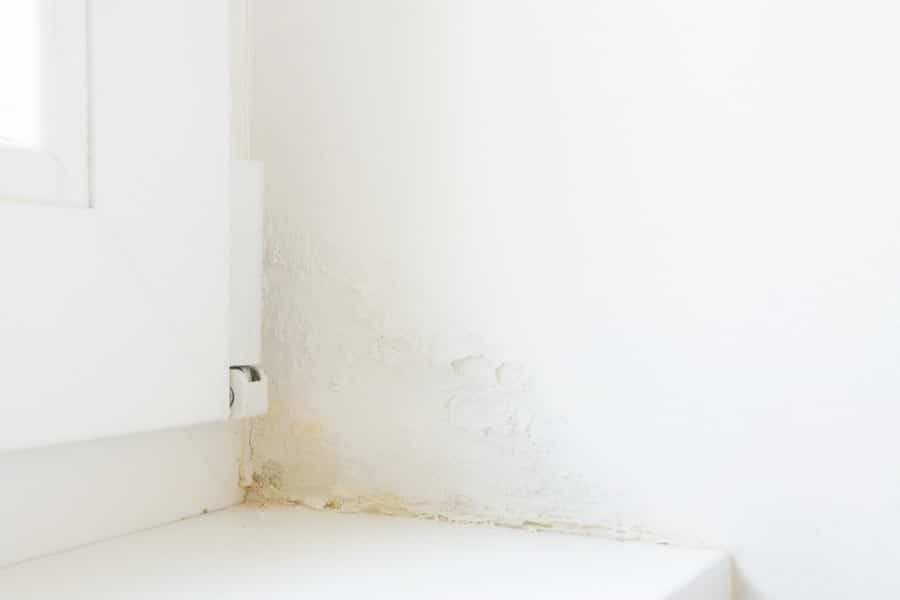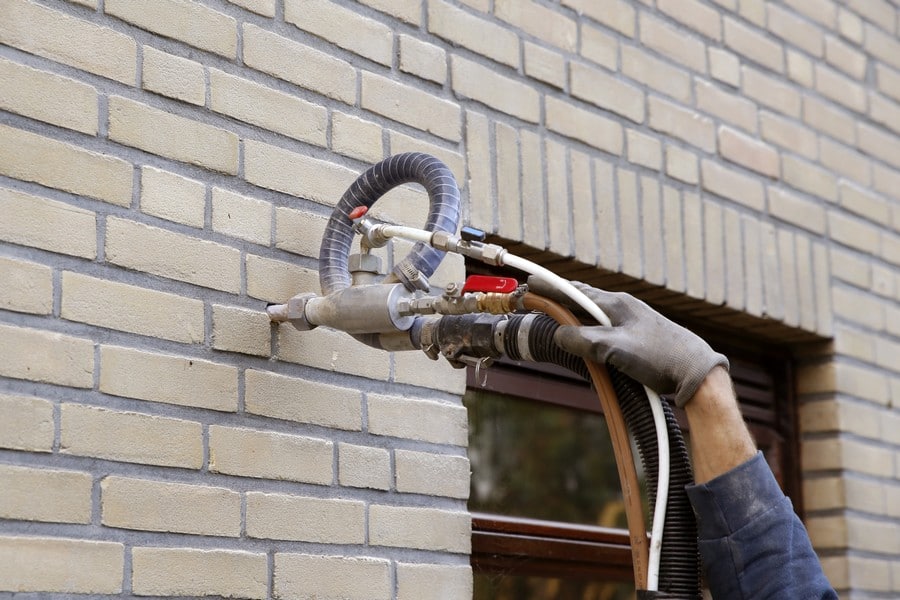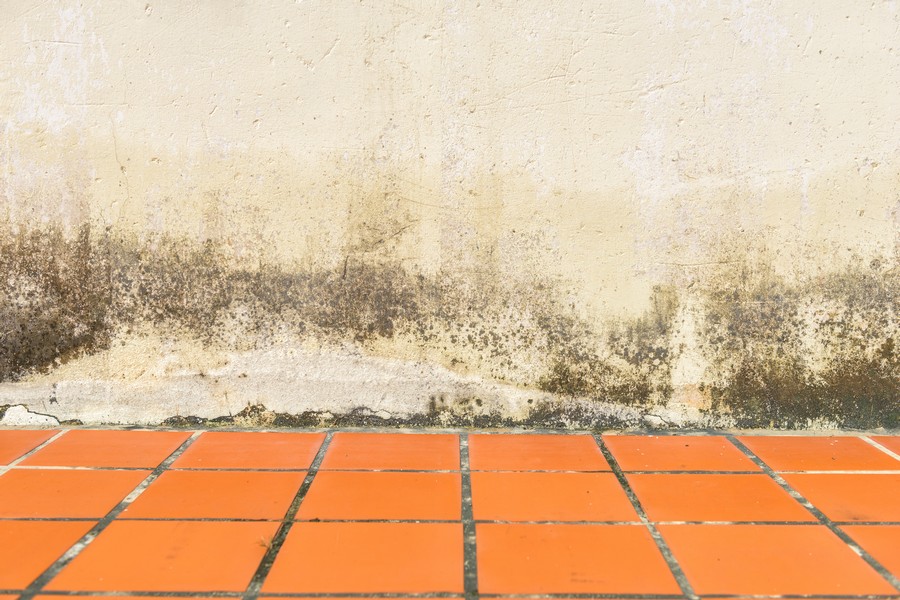Contact Sussex Damp Experts Now to Speak With an Expert.

Sussex Damp Treatments advises that there are several common indications of dampness in a building. These include the presence of a musty odour, mould or mildew on walls, floors or ceilings, cold and damp surfaces, patches of dark or discoloured plaster or walls, wallpaper that has lifted or peeled off and excessive condensation on windows. If you notice any of these signs within your property, it is essential to seek professional advice from Sussex Damp Treatments immediately. Our team can provide expert guidance on how to tackle the issue effectively and prevent further damage to your property’s structure. Contact us today at 01273 257 212 for prompt assistance with all your damp-related concerns.
Dampness can pose a serious threat to the structural stability of buildings. It can cause mortar on the exterior walls to break and salt streaks to appear while also corroding steel and iron fasteners, further weakening the structure. In extreme cases, infected walls may experience plaster or mortar breakage. Additionally, dampness leads to secondary damage in structures by encouraging the growth of rare wood-based fungi that could eventually result in sick building syndrome. Dampness also causes paint and plaster peeling as well as wallpaper deterioration. To prevent rising damp from damaging property integrity, an effective damp proof course is one of the best treatments available for rising damp prevention.

The height at which damp masonry rises in walls is dependent on the type of masonry and exterior ground sections, with a maximum height of one metre. The manifestation of rising damp can be seen as a horizontal tide mark on the wall, accompanied by discolouration, spots, peeling wallpaper and white salt stains drawn out from the brickwork by water. Sussex Damp Treatments offers comprehensive solutions for all your rising damp needs.
To combat and prevent rising damp, we employ a diverse range of techniques and solutions. One of the most effective and cost-efficient treatments involves injecting a silicone-based chemical into the wall through small perforations.
This creates a water-repellent barrier within the wall that dries to form an impervious shield against moisture infiltration. Typically, contaminated internal plaster affected by salts from rising damp must be removed and replaced with salt-resistant plaster to facilitate the natural drying of moisture in the wall.
Our team employs this method with confidence, knowing it is one of our most successful approaches for eliminating rising damp issues while remaining cost-effective for our clients.

Penetrating damp, also known as “rain penetration,” occurs when excessive water infiltrates a home through an external wall. This can happen at any property level through walls, roofs, windows or door surrounds and is often caused by roof tile defects, broken pointing, blocked weep holes or faulty seals. Addressing the issue of penetrating dampness sooner rather than later will result in less damage to your home. Our team of damp proofing experts can conduct a survey to identify the root cause of the problem and provide effective solutions tailored to your specific needs. Don’t hesitate to contact us at 01273 257 212 for assistance with this pressing matter.
Contact Sussex Damp Experts Now to Speak With an Expert.
Penetrating dampness, also known as rain penetration, is a hazardous problem that can occur when water from the outside enters your home. Identifying and treating the source of water infiltration with cost-effective solutions is crucial to avoid further damage. At Sussex Damp Treatments, our experienced moisture-proofing specialists are equipped to assess and resolve penetrating damp issues. We have helped thousands of households in Sussex by providing expert damp-proofing services. If you require qualified professionals for a survey or consultation, please do not hesitate to contact us at 01273 257 212.
Damp proofing is a vital method to prevent moisture from penetrating structures, particularly rising damp. The telltale signs of this issue include yellowish or brownish stains and blown plaster at the bottom section of walls above skirting boards, as well as decaying or moist floors and skirting boards. Short-term repairs like repainting or painting over the damp will only increase long-term costs and necessitate future redoing of work. A damp proof course (DPC) acts as a water-resistant barrier running along the length and width of walls to prevent groundwater from creeping up through capillary action. Sussex Damp Treatments offers various options for damp proofing, each with its own benefits. A DPM can be added to a DPC using silicone material to manage moisture effectively by creating a coating process that protects buildings from water and moisture such as rain while providing resistance against pressure due to cement content like shotcrete. Cavity wall construction creates space between inner and outer walls preventing water ingress while pressure grouting plugs gaps in masonry walls.
Call Our Sussex Damp Experts team now for a free quote, consultation and advice:
To combat rising damp in brick and masonry walls, a silicone-based formulation is injected into a sequence of holes made along the base of the wall to create a chemical damp-proof course. Contrary to popular belief, this method does not form an impenetrable physical barrier but instead fills the pores with a water-repellent silicone compound. The charged attraction between brick particles and water molecules is neutralised by the silicone-lined pores, reducing adhesive attraction to match that of cohesive force. A simple injection applicator is used to inject 12mm holes drilled into the bed joint with the silicone-based damp-proofing cream which diffuses quickly before curing, forming an effective water-repellent DPC.

Even with a chemical damp proof course system installed in bricks or blocks, water can still rise through the perp-end joints. This is because water requires a continuous channel to travel through in order to climb up walls. As such, the only layer that can act as a moisture-proof course is the mortar bed joint. Internally, it is recommended that a DPC be placed at least 150mm above external ground level beneath ground floor joists or close to solid flooring. If there are any compatibility issues between these two layers, additional measures may need to be taken to safeguard low-lying regions and flooring timbers.
A vertical upstand must be created where walls extend beyond the new DPC, such as when they form part of an enlarged terrace. This prevents horizontal moisture transmission from surrounding walls. To create a vertical DPC, inject cream into holes in a zigzag pattern following the mortar line up the wall for at least one-metre height-wise.
Low-pressure damp-proofing cream has emerged as the preferred silicon-based chemical for wall damp-proofing, replacing high-pressure injection fluids. Early versions of this cream contained 10-60% active chemicals and relied on thickening agents to create a workable paste-like texture. However, advancements in technology have led to the development of BBA-approved ‘Damp-Cure’ DPC cream that is composed of silane/siloxane and emulsified to form a 100% active cream without any thickeners. This innovative formula enables better penetration into capillary pores of stone walls, making it more effective than its predecessors. To ensure successful treatment against rising dampness, holes should be filled with the damp-proofing cream at intervals of 100-120mm and up to 90% depth of the wall.
Our team of highly qualified professionals takes pride in delivering exceptional service with a warm and welcoming approach. From the initial survey to the final consultation, we prioritise knowledge, expertise, and hard work to ensure that you can rest easy knowing your project is in capable hands. Our commitment to excellence means that every step of the way, we strive for perfection and take great care to exceed your expectations. Trust us to provide top-notch service with a personal touch, as our team works tirelessly to deliver results that will leave you impressed and satisfied.
At Sussex Damp Treatments, we specialise in providing comprehensive damp and timber reports. Our surveyors have undergone extensive training to ensure that they can offer the best solution for your property’s unique needs. We take pride in being a reputable business that offers a thorough approach to older constructions. Our goal is to provide you with a medical certificate of good health for your property by permanently resolving any damp issues.
Unlike other contractors who prioritise price over quality, we believe in offering cost-effective solutions without compromising efficiency. Our courteous and friendly employees are dedicated to ensuring that you can relax knowing that your property is in good hands.

Contact Sussex Damp Experts Now to Speak With an Expert.


Max and his team have been at our property all week and I really can’t thank them enough for the fantastic job they’ve done on plastering both our walls and ceilings. They have literally transformed the appearance of our house! Not only has Ma…
From start to finish Max has been incredable. His knowledge lin damp proofing is second to none and his team where very clean and polite. The plastered finish was like glass so happy we choose Max Plastering for job.
Lovely bunch of lads left a very neat and clean job. Problem was solved.
Perfect Finnish and all left clean and tidy and no mess. Used Max previously and would not hesitate to ask him carry out more work.
Max, Harvey and Stuart arrived promptly as arranged. Done a great job on our outside rear wall. Work completed to a high standard, removal of all old material and cleaned up after themselves. I am so pleased with the standard of their work they ar…
They turned up on time and carried out the works in a very professional manor leaving the front of the house clean and tidy. Very impressed would definitely recommend.
I have to say that on every level Max (with Stuart and Harvey) did an extremely professional job! They explained what they were going to do, they were polite and courteous and respected that they were coming into our home. The plastering is of the…

I called max and he managed to come around the same day to do a survey. The next day I received an extremely detailed survey compared to any other damp proofer which made me feel very at ease that he was going to do the right job. Max and team tur…
Contact Sussex Damp Experts Now to Speak With an Expert.